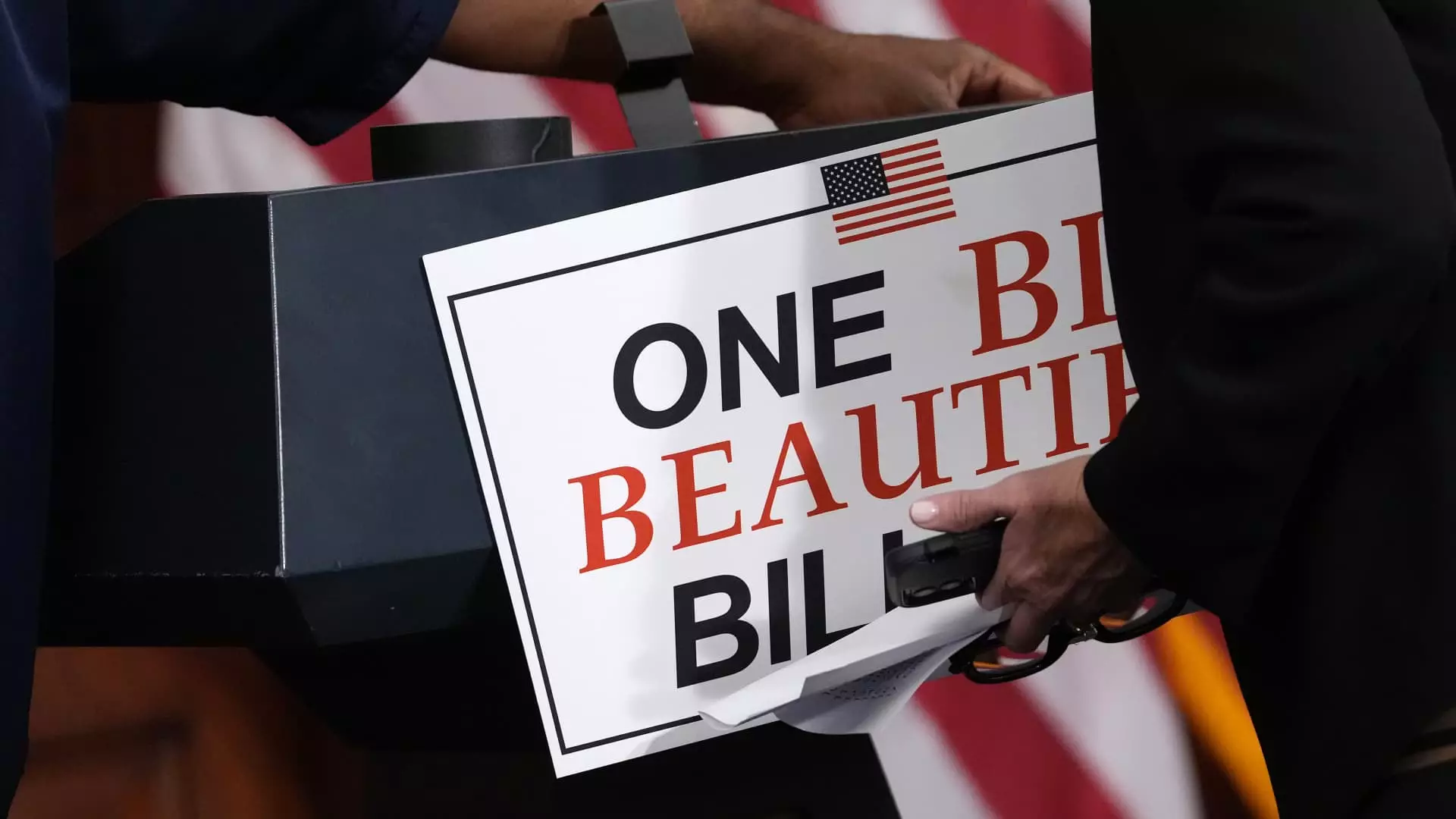In what can only be described as an audacious endeavor, House Republicans recently passed a massive tax and spending package, exorbitantly dubbed the “One Big Beautiful Bill Act.” This legislative foray, which mirrors many of President Donald Trump’s financial ambitions, has ignited fervent debates that go beyond mere politics; they touch the very fabric of American socio-economic health. Yes, we must contemplate the ramifications of making Trump’s 2017 tax cuts permanent while also slashing vital programs that sustain the most vulnerable members of our society. The sheer scale of this bill, which carries an estimated pricetag in the trillions, deserves our utmost scrutiny—not just a casual glance, but a dive into the churning waters of its consequences.
Tax Breaks for the Few, Cuts for the Many
At the heart of this legislation lies a glaring dichotomy: an abundance of tax breaks for high earners juxtaposed against savage cuts to low-income programs. While Republicans claim to be on the side of everyday Americans by introducing deductions for tip income and an expanded child tax credit, they simultaneously endorse draconian reductions for essential welfare programs like Medicaid and SNAP, previously known as food stamps. One can’t help but see this contradiction as emblematic of a party increasingly out of touch with the needs of the populace. Who stands to benefit from these tax breaks, and at what cost to our fellow citizens struggling to make ends meet in a rapidly changing economy?
Sen. Ron Johnson’s warning regarding the outrageous potential of the bill raising the deficit by upwards of $3.8 trillion should resonate with everyone. The very foundation of fiscal responsibility is at stake, yet the Republicans appear to be cloaked in a dangerous illusion of invincibility. Budget reconciliation processes, which allow the GOP to sidestep the Senate filibuster with ease, quickly transform serious discussions about responsible governance into a churning churn of backroom deals and political maneuvering.
The SALT Dilemma: A Wealthy Priority
Digging deeper, we find the highly contentious SALT—state and local tax—deduction limit. Once unrestricted, the cap is now set to land at an arbitrary $10,000 limit that favors high-income states while further entrenching income inequality. Some House Republicans propose increasing this limit to $40,000, which would cater to the wealthiest denizens of New York, New Jersey, and California, while leaving the rest of us to grapple with dwindling public services. The stark reality is that it’s the ordinary working-class American who bears the brunt of such legislative favoritism.
The debate over SALT has emerged as a vivid battleground, pitting lawmakers from affluent districts against those representing struggling communities. What seems to be on the table is not just a new tax regime but a recalibration of values: who we, as a society, prioritize. This hefty adjustment undoubtedly serves to bolster the Republican narrative of economic resilience but comes at the expense of governing a more equitable society.
Child Tax Credit: A Shaky Lifeline
The child tax credit debate embodied a more ambiguous moral quandary. While the House’s current bill proposes to make the tax credit permanent, existing provisions require that it be managed carefully lest it become yet another weapon against poor families. Even as senators like Josh Hawley call for more substantial tax breaks for families, one must wonder how genuine these appeals are when balanced against the other catastrophic cuts to essential services.
The very idea of expanding the child tax credit while simultaneously slashing safety nets shows a disconcerting lack of genuine commitment to fostering economic stability for families. It stands to reason that if lawmakers are serious about supporting families, they would put forth a comprehensive approach prioritizing economic development at all tiers of society—not piece-meal measures designed to placate a concerned public.
Political Theater vs. Real Solutions
As the Senate gears up for its version of the “One Big Beautiful Bill,” policy experts like Howard Gleckman predict additional squabbles, notably around Medicaid provisions. Meanwhile, whispers of potential adjustments to the SALT cap could lead to a watered-down version that still favors the elite.
The entire political theater surrounding this budget bill reveals a deeply flawed system that prioritizes ideologies over the well-being of constituents. Instead of considering what this package means for all Americans, those in power are focusing on the transactional elements of governance that keep the wheels spinning without addressing the moral imperative behind effective legislation. As citizens, we must demand better—a future rooted in shared prosperity, not one defined by the relentless prioritization of wealth over the welfare of the myriad communities behind these headlines.

